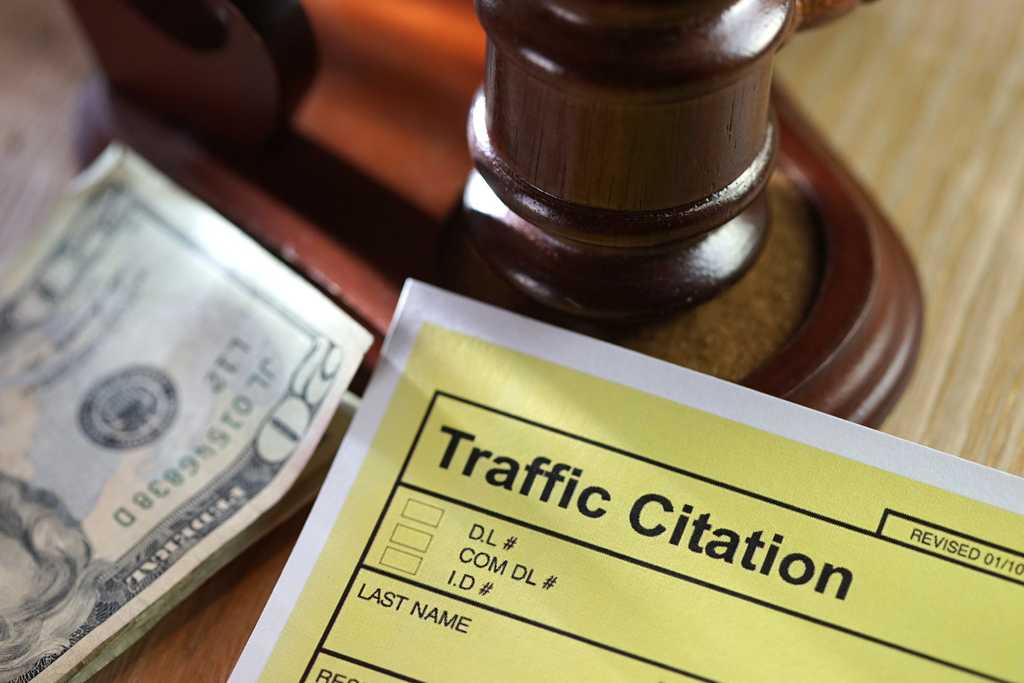Getting a speeding ticket can be a daunting experience. After you’ve gotten over the initial shock of getting a ticket, the next surprise will likely be an increase in your car insurance premiums. But how much does car insurance go up after a speeding ticket, and how long does it stay on your driving records? The answer is that it depends on several factors, including your state and your insurance company.
Average car insurance rates by company after a speeding ticket
The amount your car insurance rates will go up after a speeding ticket depends on your insurance company. Just like regular rates can vary between companies, so too can rate increases following a moving violation such as a speeding ticket. Here are some examples of the best-known car insurance companies and how a speeding ticket affects their rates.
- State Farm: 9 to 15 percent
- Geico: 19 to 34 percent
- Progressive: 27 to 29 percent
- Allstate: 14 to 25 percent
- USAA: 21 to 23 percent
Remember, these are just examples of how much your car insurance rate could increase after a speeding ticket. The actual amount will vary depending on several factors, including your age, gender, location, driving history, vehicle, and the severity of the speeding ticket. The best way to determine how much your rate will increase is to contact your insurer directly.
Average car insurance rates by state after a speeding ticket
The state in which you live also has an effect on how much your car insurance rates will increase after a speeding ticket. While drivers in some states may see a rate increase as high as 49 percent, others may see an increase as low as 7 percent. Here are some example ranges of how much your insurance rates could go up after a speeding ticket by state.
- California: 43 to 49 percent
- Florida: 22 to 23 percent
- Illinois: 27 to 28 percent
- Kentucky: 21 to 28 percent
- Louisiana: 18 to 24 percent
- Massachusetts: 26 to 35 percent
- New Jersey: 13 to 31 percent
- North Carolina: 38 to 45 percent
- Ohio: 14 to 23 percent
- Texas: 7 to 11 percent
- Virginia: 15 to 19 percent
- Washington: 21 to 25 percent
The actual increase will depend on your state, as well as the other factors mentioned above, so contact your insurer to get a more specific answer to how much your insurance rates might increase after a speeding ticket.
How long will a speeding ticket affect car insurance rates?
On average, a speeding ticket will stay on your driving record for between 3 and 5 years. But the real answer is that the amount of time the ticket will affect your car insurance rates depends on your state. Each state treats speeding tickets slightly differently, and that includes the amount of time it stays on your driving record and therefore affects your car insurance rates.
Additionally, if your driving violation was extreme, such as driving 60 in a 25-mph zone, you may lose your license entirely; especially if this was not your first speeding violation. In that case, you won’t be able to get any insurance coverage until your license is reinstated.
However, if your infraction was minor, this was your first offense, and you can maintain a clean driving record after receiving your ticket, you’ll likely see your rate start to fall each year until the ticket is gone from your record. This includes driving the speed limit, coming to a complete stop at stop signs, ignoring your phone and other distractions while behind the wheel, and avoiding accidents to the best of your ability.
How can I lower my car insurance after a speeding ticket?
While a higher insurance rate after a speeding ticket may seem like a long-term problem, there are some ways that you can work to lower your insurance rate. These include taking a safe-driving course, trying to get the ticket dismissed, asking your insurer for discounts, and shopping around for a new insurance policy with a lower rate.
Take a safe-driving class
Some states will allow drivers to remove points from their driver’s license by taking a safe-driving course. This type of course will teach you how to drive safely, including why it’s safest to drive at or below the speed limit. Look for courses that will work directly with your state’s DMV. Once you’ve completed the course, the driving school will report your completion to the DMV, and they may remove the ticket from your record.
It’s worth noting that each state has different requirements for these courses, so the best course of action is to contact your state DMV to ask whether taking a safe-driving course will help your driving record; and if so, whether there’s a requirement for a driving school where you need to take the course.
Try to get the ticket dismissed
Another option is to try and get the speeding ticket dismissed altogether. You may be able to contest the ticket if you believe that it was issued in error and that you were traveling the speed limit when you were stopped. However, it will be on you to prove that you were not speeding, which can be tricky for most drivers. Some examples of how you can prove your innocence are dash cam footage, GPS data from a phone, and a photograph showing that a speed limit sign was obscured and therefore you weren’t aware of the actual speed limit.
You can take this burden on yourself, but hiring legal representation will give you a better shot of getting the ticket dismissed if you have a case. But in many cases, going to court over a speeding ticket may be more trouble than it’s worth. However, if you do have a case and can successfully get your ticket dismissed, it’ll be removed from your driving record and shouldn’t affect your car insurance rate.
Look into discounts
While insurance companies won’t give you a discount for getting a speeding ticket (quite the contrary), they may offer some other discounts that you can take advantage of to lower your car insurance rate. One of the most common discounts is for bundling different types of policies under the same insurer. That could include bundling your auto insurance with homeowners or renters insurance. Some insurers may even allow you to bundle your car insurance with other types of policies, such as pet or liability insurance.
You may be eligible for other discounts like having certain safety features on your vehicle, paying your premium in full rather than in monthly installments, enrolling in autopay, or for choosing paperless billing. The best way to find out which discounts are available for you is to contact your insurer directly.
Get multiple quotes
If all else fails, shopping around could result in you finding an auto insurance policy with a lower rate. While your speeding ticket will result in a higher rate with any insurer, the rates available to you may differ between insurers. If you’ve been thinking of shopping around for a lower rate anyway, this is a great time to follow through and see what’s available for you.
What to do if you receive a speeding ticket
If you’re pulled over for speeding, you’re probably feeling a little shaken and shocked. But it can be a good idea to take down some information in case you decide to contest the ticket. This includes the following:
- What method did the officer use to determine the speed at which you were traveling?
- What was the time of day and the location in which the incident happened?
- Were the speed limit signs missing or obscured, causing you to miss them?
When you are pulled over, it’s best to say as little as possible, even if you might want to defend yourself or argue with the officer. Just like the saying goes, anything you say can be used against you as evidence if you decide to take the matter to court. Remain as calm as possible and write down everything you remember once the officer has issued the ticket and left the scene.
Once you’ve gotten home, you’ll need to decide whether to pay the ticket or contest it. If the ticket was issued in fairness, your best bet is to pay the ticket and accept the higher insurance rate that will likely accompany it. Trying to fight a ticket in court without evidence that you weren’t doing anything wrong when pulled over will just be a waste of time and money. But if you feel like you were pulled over wrongly and have a case, you can choose to contest the ticket either solo or with the help of a lawyer.
If you decide to pay the ticket and accept the consequences, there are some ways you may be able to limit the increase to your car insurance rate, as outlined above.

